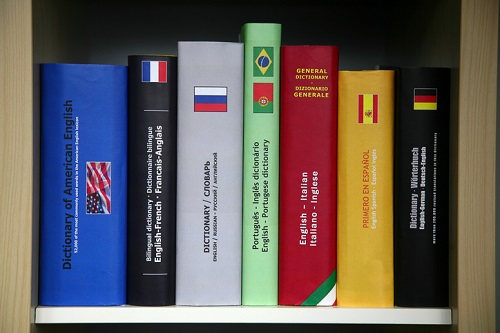
Singapore has long held a bilingual policy in its schools, with the learning of both English and a mother tongue made compulsory for both primary and secondary students.
Although there have been amendments to simplify the learning of second languages – Ministry of Education’s introduction of the “B” syllabus for Chinese, Malay and Tamil subjects by 1999 – proficiency in English continues to be top priority for students, even for entrance into various university programs.
Recently, the issue of bilingualism has once again cropped up in Malaysia and Hong Kong, with both countries debating over how to strike a balance between raising standards of English and the country’s national language. The Educator takes a look at how each country is handling the issue.
Hong Kong: Lower exam requirements or raise standards?
Hong Kong has been in a heated debate recently after a survey found that three out of five secondary schools support lowering the minimum Chinese and English language requirements for university admissions.
In the survey of 125 school principals, about one in three of those who support lowering language requirements would like to see the minimum moved to a grade two instead of the current minimum of grade needed by students. This is provided they achieve at least 10 points in their four core subjects.
Hong Kong’s university entrance exams are based on a seven-level grading scale.
Hong Kong Association of the Heads of Secondary Schools’ chairperson Lee Suet-ying said that while proficiency in languages was important, pupils who are relatively poor in languages but excel in other subjects should be given the chance to pursue tertiary education.
First published in the South China Morning Post, readers were quick to criticise the findings with some calling it a myopic view of students’ education.
One reader wrote that lowering language requirements may benefit graduates and secondary schools as it creates an easier path to university, but students may find themselves struggling to cope academically at university level where they are required to read and write assignments.
He also went on to say that it may further “dumb down their communication skills” when graduates move on to the working world.
Another reader suggested that instead of lowering language requirements for university exams, schools should take steps to improve the use of both languages from primary school onwards.
Laying down the foundations in the early stages of a student’s education would boost language proficiency in the long run, she added.
Malaysia: 'Language Days' could fail as teachers are not fluent
Last week Malaysia’s education minister announced the ministry’s plan to introduce weekly national language and English days for all school streams.
On national language day, Bahasa Malaysia (BM) will be used for the whole day in all national schools, including Chinese and Tamil schools, as well as private schools. The same would be done on another day for the practice of English.
Dr Maszlee Malik also added the possibility of adding third and fourth languages for schools, for example Mandarin or Tamil. Malaysia’s official language is Malay or BM, but its multiracial residents are also made up of Mandarin- and Tamil-speakers.
Most have lauded the move but some are doubtful whether national schools will be able to execute the plan effectively – particularly for English day.
“English is not spoken among them as well as many teachers,” a senior English teacher told The Star, referring to national schools. “Daily announcements are also made in BM because they can’t speak English well.
“Therefore, students are not encouraged to speak English since the school authorities themselves do not want to speak it.”
To overcome the issue, deputy education minister Teo Nie Ching said the ministry is studying a way to partner private schools to improve English proficiency in public schools.
“We have a big problem with English teachers because the private sector wants them,” Teo said. “Many teachers who have been trained by us go into the private sector as it offers better pay.”
The ministry is thus looking for a way to have a working relationship with private schools to tap on their resources, she told Malay Mail.
More than just having access to private educators, Teo is also keen on adopting their training methods as well as the expertise of the trainers themselves.
“We believe the private sector has teachers who are good with English, so it’s about how to tap into their strengths and resources to perhaps conduct English tuition for the teachers or even the students.”
How are you boosting language proficiency in your school? Let us know in the comments below.
Related stories:
English learners: what principals should know
Cambridge to bolster teaching of English in Asia


